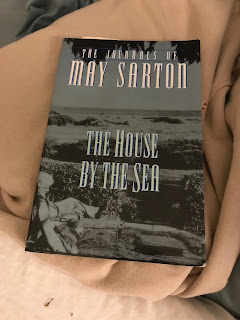Photo by Anna Reavis
“It was spring now. To Jordan, the best season. Out on the old farm the new tenant family opened up long cuts in the body of the earth and dropped in seed, letting each find its place, then turned in new dirt—leaving the fields looking as if they had been swept by a big cleaning woman. The mid-South rains came down in the afternoons and once or twice through the night. The moist seed split. Sprouts shouldered their way up through the crust of ground and got their leaves to the sunlight.”
Seven Word Synopsis: Black man triumphs in the Fifties South.
As I read Move Over, Mountain by John Ehle, I tried to figure out what was bothering me about the book and why it didn’t seem to engage me or to speak to me. The characters, place, setting, and plot had the capacity to be great, but the book rarely seemed to delve beyond the surface of what was happening. I tried to decide if it would be possible to put into words what differentiates a great novel from a good one. The subject feels like one that may take years to elucidate, but I was able to conclude that novels that are just good, but not great, while entertaining and diverting and not unworthy, seem to lack metaphor, figurative language, poetry, and deep universal truths. Had there been more passages like the one above, this would have been a better book. I’m no book snob, but reading some books is like eating at a five star restaurant, while reading others is like getting McDonald’s take out. I won’t say Move Over, Mountain is McDonald’s. I liked it. It was more Cook Out than Mickey D’s. It just felt hollow, and I suspect I will eventually forget having read it.
Assessment: Entertaining but quickly devoured like homemade chocolate chip cookies.





